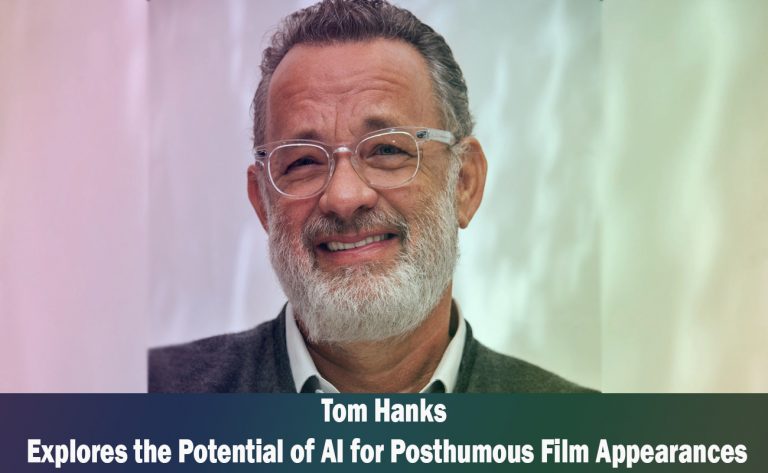
Last updated on: May 16, 2023
Renowned actor Tom Hanks has recently sparked discussions and intrigued the entertainment industry by discussing the possibility of using artificial intelligence (AI) technology to continue appearing in films even after his death. Hanks, known for his iconic roles in movies like “Forrest Gump” and “Cast Away,” has expressed interest in leveraging AI to create new performances, allowing him to star in movies as a virtual version of himself long into the future.
The Vision: AI Bringing Tom Hanks Back to the Silver Screen
Hanks has shed light on his fascination with the concept of posthumous film appearances through AI. He revealed that he could potentially pitch a series of movies in which he would play a perpetually 32-year-old version of himself, thanks to advancements in AI and deepfake technology. This vision opens up exciting possibilities for both the actor and the film industry at large.
Exploring the Boundaries of AI and Ethics
While the idea of resurrecting actors through AI-generated performances is not entirely new, it raises significant questions surrounding ethics and consent. Previous instances, such as the recreation of Peter Cushing’s character in “Rogue One: A Star Wars Story,” have demonstrated the technical feasibility of digitally recreating deceased actors. However, generating entirely new performances by deceased actors brings forth a fresh set of ethical and artistic considerations that need to be carefully addressed.
Challenges and Implications
Creating convincing virtual representations of actors requires meticulous attention to detail, including facial expressions, voice mimicry, and capturing the essence of their performances. Additionally, obtaining proper consent and rights from actors or their estates poses a legal and moral challenge.
Moreover, the use of AI to continue an actor’s career beyond their lifetime presents an array of artistic and cultural implications. It raises questions about the nature of authenticity, the preservation of an actor’s legacy, and the potential impact on storytelling and the movie-going experience.
Looking to the Future
Tom Hanks’ remarks have ignited a broader conversation within the entertainment industry about the possibilities and ethical boundaries of posthumous performances through AI. While the technology continues to evolve, industry professionals, including filmmakers, legal experts, and ethicists, will need to collaborate to establish guidelines and standards that address both the creative potential and ethical concerns surrounding this emerging field.
As AI and deepfake technologies progress, it remains to be seen how filmmakers will navigate these uncharted territories and strike a balance between the artistic freedom of expression and respecting the wishes and legacies of actors.
Final Thoughts
Tom Hanks’ exploration of the potential for AI to enable posthumous film appearances has sparked widespread interest and raised important questions about the future of cinema. While the concept is still in its early stages, the entertainment industry will need to carefully navigate the technical, ethical, and artistic challenges associated with using AI to continue an actor’s career beyond their lifetime.
As technology improves, the boundary between the real and the virtual becomes increasingly blurred, prompting a reevaluation of our understanding of art, authenticity, and the impact of AI on the world of filmmaking.
